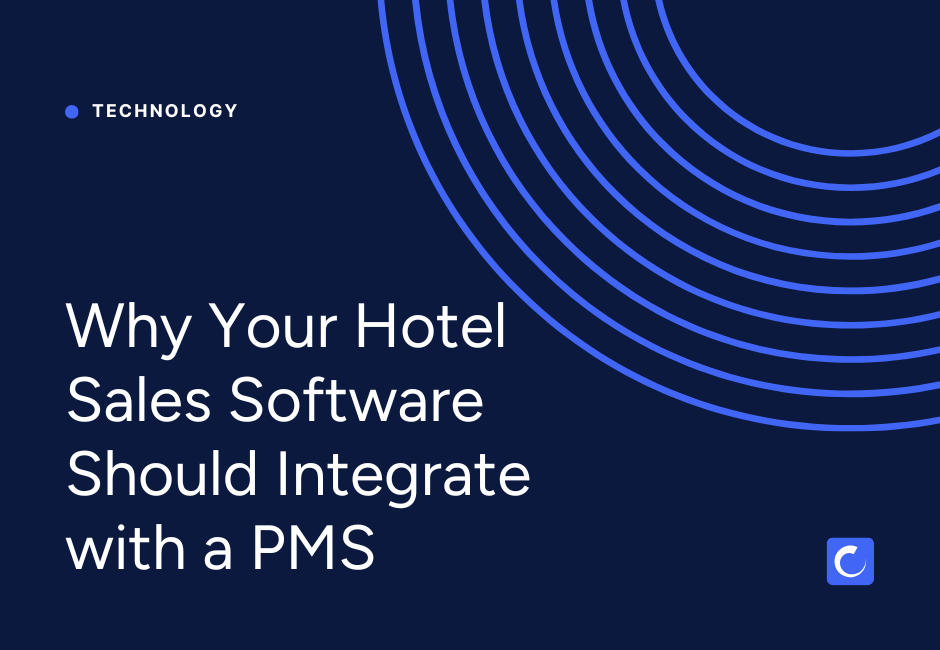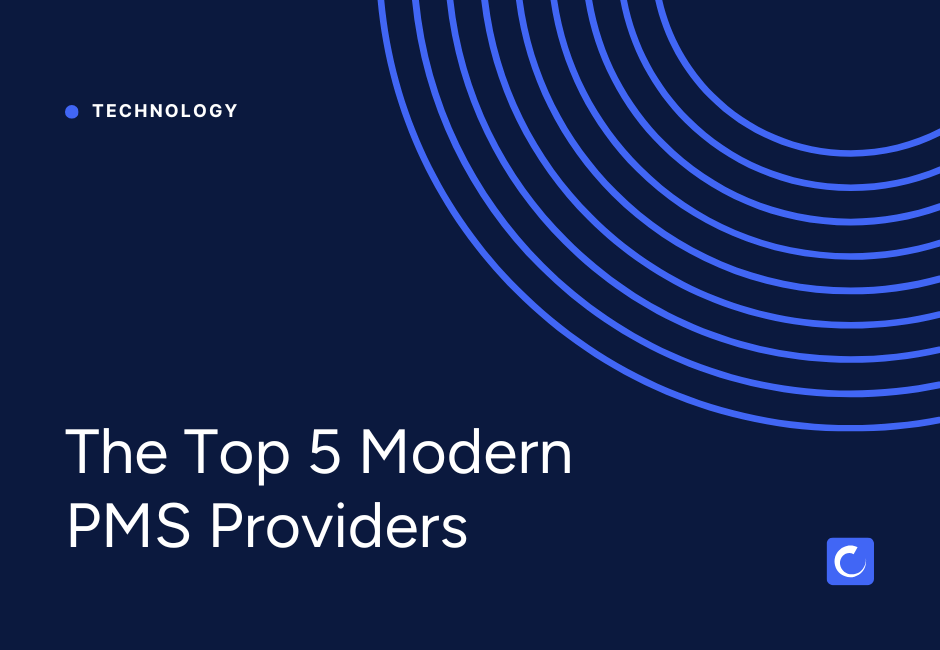
You have ever wondered how modern hotels manage to deliver flawless guest experiences? The secret is a robust hotel tech stack. Whether it’s managing bookings, streamlining check-ins, or enhancing guest services, the right hotel management software plays a pivotal role. Depending on your property’s size and specific needs, the choice of hotel software can set you apart.
So, what should you include in your hotel tech stack? This isn’t just about keeping up with technology—it’s about leveraging it to create smooth and efficient experiences that guests love and staff appreciate. You might have a few Hotel Software helping you run your hotel or a chain of Hotels but is it updated? Are you missing out on any core pillars in the Hotel Software Integration system that could help you get more revenue? Let’s find out.
What is a Hotel Management Software?
Hotel management software is a tech solution designed to automate and simplify the operations of hotels and similar establishments. It combines functions like guest bookings, room assignments, rate management, and billing into one system. The main aim of this software is to boost operational efficiency, enhance guest satisfaction, and increase revenue. It offers real-time data access, aiding managers in making swift and informed decisions, and provides insights into guest preferences for more personalized service and effective marketing strategies. The prime example could be software like Event Temple offering solutions to handle your meetings and events.
What is a Hotel Tech Stack?
A hotel tech stack is essentially the superhero toolkit of software and tech goodies that keeps a hotel humming along smoothly. Picture it as a finely tuned set of systems like the Property Management System (PMS), Customer Relationship Management (CRM), Revenue Management System (RMS), Central Reservation System (CRS), and the Sales and Catering (S&C) systems. These tools work together to juggle everything from reservations and room service to billing and banquets.
Imagine trying to coordinate all the hotel's operations manually—yikes! Thankfully, each piece of the tech stack chips in, ensuring everything from check-in to check-out flows as smoothly as a lazy river. Not only does this tech wizardry help keep the staff from going bonkers, but it also ensures guests get that 'wow' experience every time they visit. So, a hotel tech stack isn't just fancy tech—it's the behind-the-scenes magic that keeps the lights on, the guests happy, and the chaos neatly organized.

Signs your Hotel Tech Stack is Outdated
An old-fashioned hotel tech stack can slow down your operations, limit your revenue opportunities, and disappoint your guests. How do you know if your hotel's technology is falling behind? There are several key indicators to watch for.
- Manual Processes: Reliance on manual and paper-based methods shows your tech stack needs modernizing to enhance efficiency and minimize errors.
- Integration Issues: If your systems require manual data transfers, it's time for an upgrade to ensure seamless integration and reduce error risks.
- Focusing insufficiently on Meetings & Events: Group bookings are a significant revenue source for hotels, and not prioritizing this segment can result in missed financial opportunities. Implementing tools like Event Temple can effectively address this gap, ensuring you fully capitalize on the potential of group and event bookings.
- Limited Guest Personalization: An inability to personalize guest experiences based on their preferences suggests the need for a more capable CRM system.
- Data Silos: When data can't flow freely across departments, it's a sign that your systems need integration to improve collaboration and decision-making.
- Inadequate Analytics: Lacking advanced analytics and reporting indicates outdated software; modern systems provide detailed insights for strategic decisions.
- Subpar Revenue Management: Missing features for optimizing rates and managing distribution channels mean your revenue management tools need an update.
- Slow Performance: Delays in processing key operations like check-ins or reservations suggest the need for more efficient and faster technology.
- Weak Data Security: Older systems may lack robust security measures, making upgrades crucial to protect sensitive guest data against cyber threats.
- Clunky User Interface: If your system's interface hinders usability, consider switching to software with a more intuitive and user-friendly design.
- No Mobile Support: A tech stack without mobile capabilities for staff and guest services is falling behind in today's mobile-first environment.
Consequences of Using Outdated Hotel Management Software
Consider a hypothetical example: Riverview Resort. This resort once relied on a decade-old software system that led to frequent booking mishaps—double-booking during the busy season and underbooking during off-peak months. The system's failure to integrate with online travel agencies meant lost visibility and revenue opportunities. Guest frustrations over incorrect billing and booking issues were common, leading to a steep decline in return visits. Recognizing these challenges, Riverview Resort upgraded to a modern software solution, which streamlined operations, enhanced guest satisfaction through personalized service offerings, and optimized revenue management—ultimately revitalizing the resort's brand and profitability. An example of a modern solution can be MEWS integrated with Event Temple.
What to do if your Hotel Management Software is obsolete
Building a robust hotel tech stack is essential for modern hospitality management. This brief step-by-step process will help you identify the right tools and systems.
- Assess Needs and Goals: Understand the specific needs of your hotel, considering both operational challenges and guest expectations.
- Conduct Comprehensive Research: Explore different vendors, compare features, and consider integration capabilities with your existing systems.
- Prioritize Integration and Scalability: Ensure that all components of your tech stack can seamlessly integrate. Scalability is crucial for adapting to future needs.
- Implement Security Measures: With hotels handling sensitive data, ensuring robust cybersecurity measures is critical.
- Train Staff and Monitor Progress: Proper training on new systems is crucial. Regularly review the tech stack’s performance and make adjustments as needed.

Must-Have Software for Modern Hotels
- Property Management System (PMS): Streamlines core operations from booking to billing. A PMS is essential for managing daily activities such as room assignments, staff management, and guest services, making it the backbone of hotel operations.
- Customer Relationship Management (CRM): Manages guest data and automates personalized communication. This tool enhances guest relationships through tailored marketing strategies and improved customer service, leading to increased guest loyalty and repeat business.
- Sales and Catering Software: Essential for managing large group bookings and events efficiently. This software helps coordinate event planning, from initial inquiry to final billing, ensuring a seamless experience for both guests and staff while maximizing revenue from events.
- Revenue Management System (RMS): Optimizes pricing and maximizes revenue potential. An RMS analyzes market data to adjust room rates dynamically, ensuring competitive pricing while maximizing profitability across different channels.
- Central Reservation System (CRS): Acts as a hub for all booking channels, including direct bookings, online travel agencies, and third-party agents. A CRS ensures consistent availability and rate information across all platforms, helping to maximize occupancy and manage distribution effectively.
If you liked this, you might want to read further here and learn more.



